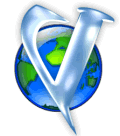
Vector Linux 5.9
 |
Vector Linux 5.9 Documentation |
External Storage Devices with VectorLinux 5.9 |
CONTENTS1.
Introduction
1. IntroductionIn the past many new Linux users, especially those that come from Windows, were immediately struck by the somewhat inconvenient floppy or cdrom drive access. Well, that used to be the case in older versions of Linux, but not anymore. This manual will quickly point out the features of how to access your external storage devices. If none of this makes sense to you please read Section 6 below to understand the underlying mechanisms, and hopefully that might give you the background understanding you require. 2. Floppy DrivesWe assume that you are working with the xfce desktop environment. The most important thing is that you should see desktop icons, and one of them is "Floppy". To work with a floppy, simply:
That´s all. If you want to know the details of what is happening: clicking the floppy icon mounts the floppy and launches the file manager. Then when you close the file manager, the floppy will be unmounted. You must remember one thing though, do not remove the floppy diskette before you close the file manager, or while the floppy-drive light is still flashing. Doing so could damage your floppy data. 3. CDROM DrivesYou access these in the same manner as the floppy drive. Simply:
Note that music CD's are not a proper filesystem and therefore cannot be mounted via this method. You can check a music CD's contents with a ripping program such as RipperX or a CD Player such as xmms. IF you use the HAL system, inserting a music CD will immediately launch xmms and begin to play the CD. 4. CDWRITER DriveOk, this is a bit different. We cannot use a file manager to write data onto a CDR platter. You must launch a cd-burning program from the user menu. Those programs available to you with VL5.9 Standard are k3b or xfburn. 5. USB Storage with either vl-hot or HALTechnically, USB storage devices (including Pen Drives, flash memory readers, external hard drives and mp3 players, etc.) are a different story than floppy or CDROM drives because they are handled by either the vl-hot hotplug system or the HAL system, depending what you chose when you installed VL. Theoretically, if you have vl-hot running when you plug in a USB or PCMCIA device it should automatically display an icon for the device on the desktop. Click that new icon and you should then be able to browse the files on that device with the Thunar file manager. vl-hot is a purely udev based automount system for any kind of pluggable storage device that conforms to the block device specification and so uses scsi emulation. Hardware known to work with vl-hot are USB pendrives, hard disks, digital cameras, memory card readers, PCCARD (or PCMCIA) memory cards and drives. Firewire devices should work, but there are no user reports on this kind of hardware yet. The working specifications of vl-hot are:
For systems using HAL the device will be automatically mounted and the Thunar file manager should launch showing the files on your device. HAL tends to mount devices in the /media file direc tory. 6. How They WorkThis is the explanation if you want to know the underlying mechanisms of filesystem mounting. Normally, all of these are configured by VL autosetup during installation and only in unusual circumstances will you need to concern yourself with manually mounting a device. However, problems may occur and this information may assist you: 6.1 Floppy and CDROM drivesAll storage devices (like everything else in Unix/Linux) are treated as a file. To this end they are usually given a filename in the /dev directory (e.g. /dev/cdrom). Before accessing a storage device it must be "mounted". Floppy and CDROM drives both work on the same principle.
6.2 CDWRITERFor CDWRITER, k3b and xfburn will access the device directly. So we don't have to bother about mounting it.
6.3 USB-STORAGEUSB storage is handled by vl-hot or HAL. If everything goes right ??? How vl-hot works can be read in more detail at "Joe1962"'s website. 7. CreditsCopyright 2008 Vector Linux |